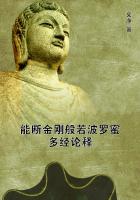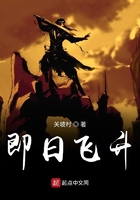The trail made a detour to the east of the village of the Wamabos, and then returned to the wide elephant path nearer to the river, where it continued in a southerly direction for several miles. At last there came to the ears of the ape-man a peculiar whirring, throbbing sound. For an instant he paused, listening intently, "An aeroplane!" he muttered, and hastened forward at greatly increased speed.
When Tarzan of the Apes finally reached the edge of the meadowland where Smith-Oldwick's plane had landed, he took in the entire scene in one quick glance and grasped the situation, although he could scarce give credence to the things he saw. Bound and helpless, the English officer lay upon the ground at one side of the meadow, while around him stood a number of the black deserters from the German command.
Tarzan had seen these men before and knew who they were.
Coming toward him down the meadow was an aeroplane piloted by the black Usanga and in the seat behind the pilot was the white girl, Bertha Kircher. How it befell that the ignorant savage could operate the plane, Tarzan could not guess nor had he time in which to speculate upon the subject.
His knowledge of Usanga, together with the position of the white man, told him that the black sergeant was attempting to carry off the white girl. Why he should be doing this when he had her in his power and had also captured and secured the only creature in the jungle who might wish to defend her in so far as the black could know, Tarzan could not guess, for he knew nothing of Usanga's twenty-four dream wives nor of the black's fear of the horrid temper of Naratu, his present mate. He did not know, then, that Usanga had determined to fly away with the white girl never to return, and to put so great a distance between himself and Naratu that the latter never could find him again; but it was this very thing that was in the black's mind although not even his own warriors guessed it. He had told them that he would take the captive to a sultan of the north and there obtain a great price for her and that when he returned they should have some of the spoils.
These things Tarzan did not know. All he knew was what he saw -- a Negro attempting to fly away with a white girl.
Already the machine was slowly leaving the ground. In a moment more it would rise swiftly out of reach. At first Tar-zan thought of fitting an arrow to his bow and slaying Usanga, but as quickly he abandoned the idea because he knew that the moment the pilot was slain the machine, running wild, would dash the girl to death among the trees.
There was but one way in which he might hope to succor her -- a way which if it failed must send him to instant death and yet he did not hesitate in an attempt to put it into execu-tion.
Usanga did not see him, being too intent upon the unac-customed duties of a pilot, but the blacks across the meadow saw him and they ran forward with loud and savage cries and menacing rifles to intercept him. They saw a giant white man leap from the branches of a tree to the turf and race rapidly toward the plane. They saw him take a long grass rope from about his shoulders as he ran. They saw the noose swinging in an undulating circle above his head. They saw the white girl in the machine glance down and discover him.
Twenty feet above the running ape-man soared the huge plane. The open noose shot up to meet it, and the girl, half guessing the ape-man's intentions, reached out and caught the noose and, bracing herself, clung tightly to it with both hands. Simultaneously Tarzan was dragged from his feet and the plane lurched sideways in response to the new strain.
Usanga clutched wildly at the control and the machine shot upward at a steep angle. Dangling at the end of the rope the ape-man swung pendulum-like in space. The Englishman, lying bound upon the ground, had been a witness of all these happenings. His heart stood still as he saw Tarzan's body hurtling through the air toward the tree tops among which it seemed he must inevitably crash; but the plane was rising rapidly, so that the beast-man cleared the top-most branches.
Then slowly, hand over hand, he climbed toward the fuselage.
The girl, clinging desperately to the noose, strained every muscle to hold the great weight dangling at the lower end of the rope.
Usanga, all unconscious of what was going on behind him, drove the plane higher and higher into the air.
Tarzan glanced downward. Below him the tree tops and the river passed rapidly to the rear and only a slender grass rope and the muscles of a frail girl stood between him and the death yawning there thousands of feet below.
It seemed to Bertha Kircher that the fingers of her hands were dead. The numbness was running up her arms to her elbows. How much longer she could cling to the straining strands she could not guess. It seemed to her that those lifeless fingers must relax at any instant and then, when she had about given up hope, she saw a strong brown hand reach up and grasp the side of the fuselage. Instantly the weight upon the rope was removed and a moment later Tarzan of the Apes raised his body above the side and threw a leg over the edge. He glanced forward at Usanga and then, placing his mouth close to the girl's ear he cried: "Have you ever piloted a plane?" The girl nodded a quick affirmative.















